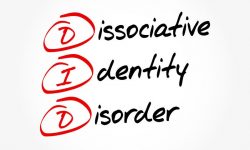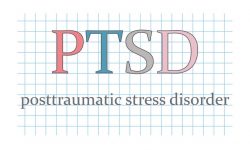Trauma
Trauma often robs us of the feeling that we are in charge of our lives. It can make us question the world and feel out of control in relation to our mind, body and emotions. Trauma therapists at the Center for Growth have provided self-help tips and articles on what trauma is, how it effects the body and mind, and how to work on relinquishing the hold trauma has on you or your loved one. In addition you can schedule a trauma therapy appointment today
What is Trauma: An Overview
Trauma is an event, or a multitude of events that overwhelms a person’s capacity to cope. When a deeply distressing event occurs, it may leave a person feeling overwhelmed and helpless, diminishing their sense of self. Trauma can leave us feeling out of control in relation to our mind, body and emotions. Trauma robs us of the feeling that we are in charge of our lives, or feeling like we can protect ourselves or effect change. It can make us question the world we live in and how safe we feel in it, and this can create enormous anxiety. When we face a traumatic event and we lack the resources to cope with it, we are left with residual pain to deal with. We need the support of trauma therapy.
When we hear about trauma, we often think about harrowing events like being at war, or experiencing a natural disaster. But trauma can be experienced in the context of dysfunctional families, relationships, educational institutions and workplaces. When people are seeking therapy, they might not even realize that what they experienced growing up, or at work, falls under the category of trauma. They may be seeking therapy for anxiety, a dysregulated nervous system (caught in fight, flight, freeze or fawn), or substance abuse. However, they end up in trauma therapy addressing the underlying cause of a lot of these unpleasant, distressing symptoms, which is the trauma itself. Let’s look at some of the nuances of trauma, trauma therapy and conditions caused by experiencing various types of trauma.
Big “T” Trauma and Little “t” Trauma
Big “T” Trauma
In trauma therapy, “Big T Trauma” refers to what we most often associate with the word trauma. Big T Traumas are the events we associate with the development of Post Traumatic Stress Disorder (PTSD) and include experiences like being at war, or in a serious accident where your life feels threatened. Big T Trauma also includes sexual violence, physical abuse, witnessing community violence, or being a witness to a loved one being harmed. Events like traumatic loss require a different kind of grieving process that trauma therapy can assist you in weathering. These life-threatening or extremely disturbing events often cause Post Traumatic Stress Disorder, which we will talk more in-depth about below.
Little “t” Trauma
In trauma therapy, “little t Traumas”are highly distressing events that can still have a massive impact on an individual, but do not quite fit into the “big T traumas”, like natural disasters or being a witness to violence. Little t Traumas often occur in the context of relationships, emotional abuse, narcissistic abuse, bullying, racial abuse, harassment or negligent parenting. Little t trauma may also include infertility, miscarraige and experiencing infidelity. Little t trauma is most often associated with complex trauma, and C-PTSD, which we will discuss below. Little t trauma is still highly impactful and can influence individuals to create maladaptive coping strategies to manage being in a relationship that’s dysfunctional, or a family dynamic that they can’t get away from. Little t trauma is different from big T trauma, but not necessarily easier to deal with.
The Risk of Re-Traumatization
One of the most common risks associated with experiencing trauma of any kind is the propensity towards re-traumatization. Experiencing trauma makes it so that you are more likely to re-experience trauma. Trauma therapy may serve as an intervention not only to heal PTSD or C-PTSD, but also to bolster healthy self-protective measures, building a stronger sense of self which can help keep you safer from trauma repeating itself. Trauma therapy can also help you to address your maladaptive coping skills. You might not need those same coping skills as much as you once did. Your therapist will help you to implement new strategies.
An example of this is if you grew up with parents who constantly put you down, your sense of self might be compromised. You might have developed the belief that you’re never good enough. This might feel vague, but all encompassing. Without trauma therapy, you might find yourself in relationships with people who treat you like your parents did. This re-traumatizes you and keeps you from healing and believing that you are good enough and worthy of relationships that reflect that. It keeps inflaming the wound of “not being good enough” and you might not only feel the pain of the present, but also be brought back to the original feelings associated with the parental-induced trauma. This is why trauma therapy is so useful in ending the vicious cycle of re-traumatization.
Post Traumatic Stress Disorder Therapy Services
Post Traumatic Stress Disorder (PTSD) occurs in the aftermath of experiencing a traumatic event. It’s helpful to break down PTSD into four different symptom categories. It’s important to remember that not everyone will experience the symptoms in the same way. Not everyone who experiences trauma will develop PTSD, and just because you don’t meet the criteria for a PTSD diagnosis, does not mean that you aren’t suffering, or that you aren’t experiencing some of these symptoms. Seeking Post Traumatic Stress Disorder therapy services will help you no matter where you are on the “PTSD spectrum.”
The Four Categories of Post Traumatic Stress Disorder Symptoms
Re-experiencing Symptoms: Something reminds you of the traumatic event and you feel fear. You might be triggered by a smell, taste or sound. And you might feel as though you are back in the traumatic event and feel sensations in your body that were present during the trauma, or you might experience the emotions that were present during the trauma. This experience of feeling like you’re going through the event again is called a flashback. Post traumatic stress disorder therapy services can help you to address the symptoms involved in re-experiencing the traumatic event.
You might also experience nightmares associated with the trauma, or feeling unsafe. Nightmares ridden with anxiety, fear and helplessness, including memories of the traumatic event. Your brain is actually trying to make sense of the event that took place, by integrating them through your dreams. However, as powerful as your mind is, it might need the help of a safe and reliable trauma therapist to help guide you into feeling safer after a trauma occurs. Post Traumatic Stress Disorder therapy services can help you to feel safer in your body and mind.
Last, you may experience frightening thoughts, ruminations and even obsessive thoughts about the trauma, or how to keep yourself safe. You might find your mind replaying the trauma on repeat and you’re unable to stop it from happening.
Avoidance Symptoms: Avoidance Symptoms occur when you try to avoid situations, people or stimuli that trigger traumatic memories. If you were in a bad accident, you might stop driving. Avoidance may also cause you to isolate yourself from others, and feel numb to your inner world. There may be feelings that need processing, but it doesn’t feel safe to turn towards them because they are too big, or too triggering to experience alone. Post Traumatic Stress Disorder therapy services can help you to safely and slowly start to re-experience emotions again with less fear and anxiety.
Arousal and Reactivity Symptoms: You might feel on edge, jittery, on guard or on the lookout for danger. This is sometimes referred to as “hypervigilance”. This may look like being easily startled, having trouble sleeping because you’re on edge and unable to feel relaxed, and having emotional outbursts. This may puzzle the people around you, but your experiences are valid. Having a skilled therapist in your trauma therapy journey will help you to learn ways of re-regulating your nervous system so that it doesn’t have to be on the lookout for danger quite as often. Post Traumatic Stress Disorder therapy services will also help you to identify and better understand your triggers so that you can develop more control and less reactivity.
Thinking and Feeling Symptoms: After a traumatic event, your beliefs and feelings might change drastically. You might experience difficulty remembering certain things, or creating/maintaining order in your life. You may become more fearful of the world, believing it’s less safe. You might feel blame or guilt, perhaps blaming yourself for what happened to you. You might feel ashamed about what you experienced. You might experience depression, losing interest in what you’ve previously enjoyed, and losing a desire to engage with other people. You might start to become fearful of others. A skilled trauma therapist providing Post Traumatic Stress Disorder therapy services understands the intricacies of trauma, and will help you to better understand what’s happening, so that you can feel empowered and start to heal your thoughts and feelings.
Complex Trauma Therapy Services: Complex trauma, often associated with C-PTSD, is trauma that is not focused on one single traumatic, or overwhelming event, but rather, an accumulation of events. When an individual experiences trauma repeatedly and cumulatively over a period of time, such as domestic abuse, child abuse and neglect and repeated sexual violence this is often considered complex trauma. Each experience of trauma is compounded by the previous experience which often has a serious impact on the individual’s mental health. Symptoms of PTSD and Complex Post Traumatic Stress Disorder (C-PTSD) often overlap but the impacts of complex trauma are often more extensive and debilitating for an individual. Part of the reason why complex trauma is more debilitating is that when trauma happens repeatedly, we can get used to it and develop ways of coping with our circumstances that are maladaptive. Complex trauma therapy services can help you to update your coping strategies and better understand your maladaptive ones that could be harming you in the present.
Individuals with a history of complex trauma may be more vulnerable to act out by abusing alcohol or drugs in an attempt to deal with or forget about the trauma that they have experienced. Complex trauma therapy services can address avoidance behaviors. These behaviors may represent a coping mechanism or an attempt to regain a feeling of emotional control. Similarly, people with complex trauma may engage in self-harming behaviors to feel in control of their pain or to refocus their pain on something that they deem more manageable or “safe.” It is important for the traumatized individual and their loved ones to understand that these are serving the individual as a coping mechanism to manage intense feelings in some way but that they can be dangerous and counterproductive to the individual’s treatment. These maladaptive coping skills may also impact relationships, intimacy, and work life. During trauma treatment for C-PTSD, the therapist will not focus on one event, but a multitude of traumatic events and how they shape an individual’s sense of self and identity, if they are carrying shame about who they are (inherent feelings of badness), their coping skills and their vulnerability to finding themselves in similarly traumatic, or stressful situations that mirror the emotions and experiences of the complex, layered trauma. Complex trauma therapy services really work to help the individual as a whole. Complex trauma therapy services can help someone with complex trauma reorient themselves towards healing and releasing unwanted patterns from the past and release shame.
Dissociative Identity Disorder Therapy Services: Dissociative Identity Disorder (DID) occurs when someone experiences extreme dissociation (an altered state of consciousness, or “going somewhere else”, to the point where they have different personalities known as alters or parts. DID is recognized by four criteria according to the Diagnostic and Statistical Manual of Mental Disorders (DSM). First, a person must have at least two or more alters or different personality states. These alters or personality states have their own way of viewing themselves, others and the world. Second, at least two of these alters take control of a host’s (main personality) behavior at various times. Third, the host finds it difficult to recall information about themselves and the extent seems beyond normal forgetfulness. Finally the above factors cannot be explained by substance use or a medical condition.
Try to imagine DID as at least two or three distinct people all living in the same body. Dissociative Identity Disorder Therapy Services can help the person and their family better grasp the reality of this experience.The host person’s body houses all of these distinct people. Sometimes the different alters know each other, other times the alters and host are unaware of the others or are only aware of certain alters. Dissociative Identity Disorder Therapy Services teach the host and alters to work more cooperatively with each other as a team. Dissociative Identity Disorder Therapy Services may include the therapeutic goal of integration, or the decreasing of the number of existing personalities, but this is not always a realistic treatment goal.
Who develops Dissociative Identity Disorder (DID)? It is estimated that one in a hundred people have DID (Haddock, 2001, p. 1). People with DID typically have a history of severe and chronic abuse or neglect during childhood. However, not all people diagnosed with DID present with a history of trauma. Sometimes people are unaware that they have DID, although they or other people in their life may suspect that something is off or not quite right. People with DID may wait for years to get a correct diagnosis and are sometimes misdiagnosed with Borderline Personality Disorder, Schizophrenia or even Bipolar. When receiving Dissociative Identity Disorder Therapy Services, your therapist will assess you for the diagnosis of DID, and also for any other coexisting diagnosis, or conditions that might also need to be better understood, or healed.
Disassociation: Dissociation refers to a continuum of experiences in which a person experiences an altered state of consciousness. On one side of the continuum there are “normal” types of dissociation that all people engage in including daydreaming when you are bored or the feeling of being on “autopilot” on a long car ride. You may forget what you were doing, not notice your surroundings or realize that you have lost track of time. On the other side of the continuum are more extreme types. Extreme types of dissociation include missing chunks of time, minimal or no memory of certain life events, or the experience of “blanking out” to insulate oneself from a difficult event. Many people who experience extreme types of dissociation are not in control of when and how they dissociate. Besides people with DID extreme types of dissociation may be experienced by people who are survivors of war, rape, natural disasters or even car accidents. During a traumatic event, you may have had to “leave your body” or “become absent/not fully present” in order to survive the event or keep your mind somewhat intact. Dissociative Identity Disorder Therapy Services will help you to identify dissociation and to understand the part that it plays in protecting yourself. Dissociative Identity Disorder Therapy Services are not commonly offered services, but at the Center for Growth, we offer this unique service to those with DID, or those suspecting they might meet the diagnostic criteria.
Children, Tweens, and Teen Trauma
Children, Tweens, and Teen Trauma occur at a higher rate than most of us would like to believe. It’s a hard pill to swallow that two thirds of Children, Tweens, Teens will experience a traumatic event by the age of 16th, according to the government research agency, SAMHSA. Many children, tweens and teens get bullied in school, which can cause overwhelm, isolation and low self-esteem. Children, Tweens, and Teen Trauma occur when community violence happens, and when abuse is present in their households. Children, Tweens, and Teen Trauma can also occur because of divorce and dysfunctional family dynamics.
It’s important to note that children, tweens and teens have less options to cope with traumatic events than adults do. Children, tweens and teens can’t decide to get an apartment in the city, or just leave their situation behind. If they are experiencing trauma as a result of what’s happening in the household, or at the hands of primary caregivers, they may feel trapped and more powerless than an adult who naturally has more options and autonomy. Children, Tweens, and Teen Trauma occur across all races, cultures and socioeconomic levels.
Trauma affects children, tweens and teens in all different ways. When Children, Tweens, and Teen Trauma occur, they have a higher risk of developing post traumatic stress disorder after a traumatic event than adults do, likely due to their increased vulnerability. Children, tweens and teens are naturally vulnerable and need protection. However, sometimes trauma happens outside of anyone’s control. Your child, tween or teen may have experienced a traumatic event no matter how well you’ve tried to shield them from danger.
Children, Tweens, and Teen Trauma therapy is essential after a traumatic event, or consistent trauma (complex trauma) due to recurring overwhelming events and situations. Children, tweens and teens are developing and learning about relationships and what to expect from the world at a rapid speed. We hear “kids are like sponges” all the time, which is precisely why trauma therapy is vital for them. Trauma therapy can help children, tweens and teens to process what happened to them, and learn ways of dealing with it, including how to hold themselves in high esteem, avoiding self-blaming and increasing self-worth. Children, Tweens, and Teen Trauma therapy may also help kids to form a safe and reliable relationship with a therapist, which can be healing in and of itself. Children, tweens and teens benefit from having an outlet outside of their primary caretakers, especially if the trauma they’re experiencing is related to their families.
Trauma from Abuse Therapy Services
Trauma from abuse occurs when someone is being physically, sexually, emotionally, mentally or narcissistically abused by someone in their life. When any type of abuse happens via someone you trust, you are likely dealing with betrayal trauma on top of other said types of abuse. Betrayal trauma hurts so badly because when we put trust in someone and they turn out to be abusive, it really hurts our worldview. Trauma from abuse therapy services can help you to reconcile your feelings of betrayal and learn to trust yourself and the world around you again.
Common questions that occur when someone experiences betrayal trauma are: “Who can I trust now that my Mother emotionally abused me?” Or, “I really trusted my boyfriend, but he started hitting me. How can I ever trust another man again?” Trauma from abuse therapy services can address these difficult questions in a safe and nonjudgmental space.
People who’ve been abused often experience a decrease in self-trust and self-worth. “How can I trust myself to pick the right partner after what I’ve just been through?” Or, “I must have done something to cause the abuse from my narcissistic ex-partner.”
Trauma from abuse can be damning, but trauma from abuse therapy services can help you to regain a sense of confidence, and heal from the different kinds of abuse you might have experienced. Many abuse victims don’t feel safe in the aftermath of their traumas, so part of receiving trauma from abuse therapy is helping survivors to feel safe, empowered and able to manage triggers as they come up. When you have a safe therapist in your corner, it’s a lot easier to process your abuse experiences, talk through them and sit through the discomfort that comes up on your healing journey. It is possible to recover from abuse and to protect yourself from being abused in the future through obtaining trauma from abuse therapy services. It helps to have the right trauma therapist on your side.
Traumatic Loss Therapy Services
Losing someone you love is one of the most painful human experiences. Grief is the kind of emotion that cannot always be tamed, stuffed or reserved for “the right time.” You might be in the produce section of the supermarket, and grief will push through the “norm” and you might cry, or be overtaken by a deep sadness. This is normal and perfectly okay. Society doesn’t make grief an easy experience; we are often only given a few days off to grieve, which sends the message that we should be “over it” in a short period of time. Receiving traumatic loss therapy services can help normalize your experiences and help you to cope with your struggles.
Grief is always hard, but when trauma is attached to loss, the grief process becomes more complicated. Traumatic loss may occur when we lose someone unexpectedly to violence or sudden death. Traumatic loss might occur when experiencing repeated miscarriages, or lose a baby in the later stages of pregnancy, or at birth. Traumatic loss therapy services can provide a safe container to process your emotions surrounding the loss. Traumatic grief may occur when watching a relative in pain over a long period of time. It may also look like losing someone who you’ve had a historically complicated relationship with. Perhaps you look back on the relationship and feel both sad and confused about the loss and what it means for your life. When looking back on complex relationships, traumatic loss therapy services can be the guiding light as you sort through what might feel too overwhelming on your own.
The truth is that what is traumatizing for one person, may not be traumatizing for another. At the Center for Growth, we understand that traumatic loss is based on an individual’s experience of grief and losing someone. Receiving traumatic loss therapy services can assist you in navigating the rocky terrain of traumatic grief and loss. You are not alone. We have expert therapists who specialize in traumatic loss, baby loss, and traumatic, persistent grief. Do not hesitate to reach out for traumatic loss therapy services.
Treatment and Coping Strategies for Trauma
Trauma therapy will teach you how to cope with the aftermath of trauma, or aid you in the process of caring for yourself in active trauma, like abuse or workplace bullying. Trauma therapy will help you to understand what your triggers are, and how they affect you. We can look at triggers as doorways into what has originally harmed us, or overwhelmed us. Triggers can come in the forms of a song that reminds us of someone we’ve lost, or a smell associated with an abuser. Triggers can be hard to detect, but with the right trauma therapist, they can help you not only to cope with triggers, but to work with them so they don’t remain as difficult to deal with indefinitely. Part of gaining treatment and coping strategies for trauma include examining triggers and working with them.
Receiving proper treatment and coping strategies for trauma requires a strong relationship with your therapist, first and foremost. You have to trust them, and they have to feel right to you so that you can open up to them about trauma and the ways in which it has impacted you. There are so many ways to heal, and learning about different forms of treatment and coping strategies for trauma can come in many forms. Your therapist may help you to gain more body awareness, using somatic interventions and mindfulness to ground you back into your body. Your trauma therapist may use such as EMDR, to assist you in re-processing memories so that you can decrease your stress levels pertaining to triggers, trauma and memory. They may suggest trauma-informed yoga, and help you to relearn how to care for yourself as a way to help you explore treatment and coping strategies for trauma.
Unresolved, or untreated trauma can leave you unable to trust yourself. This can impede upon your ability to be your fully authentic self, and thrive as an individual and a part of a community or family. Learning the different ways in which you can master treatment and coping strategies for trauma can help you get back to yourself and regain a sense of power and control over your life, while balancing and embracing the uncertainty that is life itself.




























